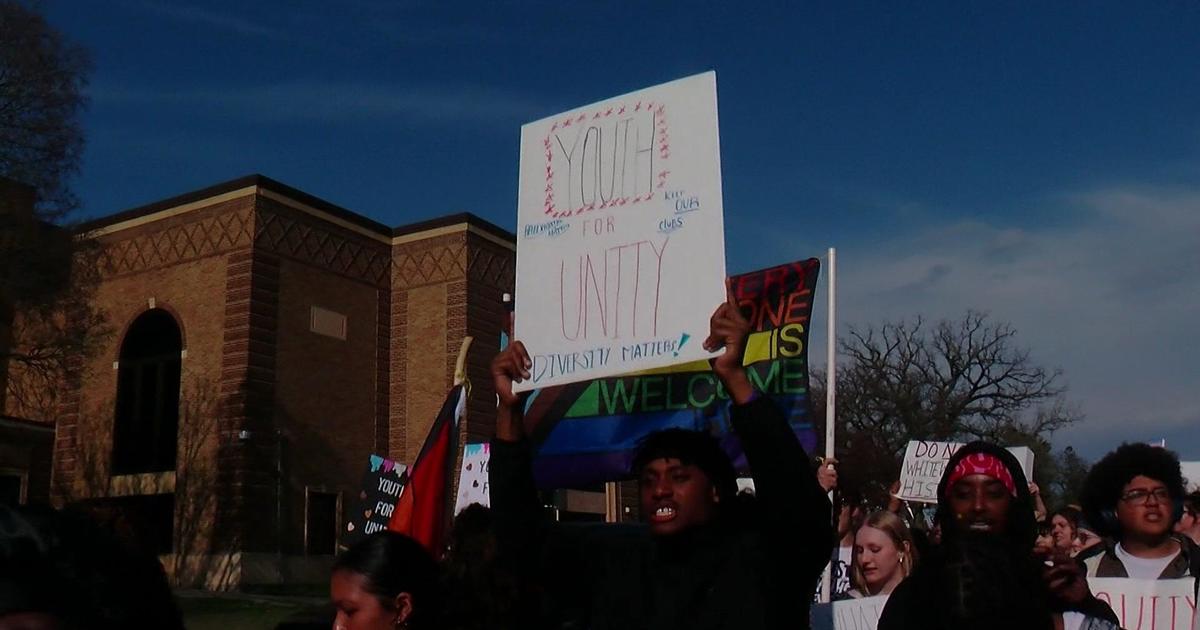Movie Blog: Top 10 Movies Of 2012
It was the best of times, it was the worst of times, at least if you ask the critics that are currently trying to convince you that all 10 of the best movies of the year just happen to have all been released in the last month or two. It's hard not to get caught up in the year-end moment, though. When we sat down to compile our individual top 10 lists in order to come up with the master list you see below, both of us were surprised to remember some of the stronger movies that came out in months typically thought of as dead zones for quality (e.g. The Grey in January).
Our lists diverged often, which is why you'll see three ties below. Still, we agreed on a few films as well. And even if we didn't both list it at number one, there really was only one choice for cinephiles of the "movie of the moment," especially as one of the movies in slot #4 openly toyed with the concept of what even counts as a "film" these days.
So here they are, eleven proofs in support of the thesis that cinema remains alive and well in 2012. In case you were curious, here are links to Eric Henderson's top 10 lists from 2011 and 2010.
NOTE: Unfortunately, a few movies that you'll see prominently on other critics' 2012 lists did not screen in Minneapolis in time to count for our list, among the most prominent examples being Zero Dark Thirty, Tabu, a few high-profile docs, and Not Fade Away. If they're as good as others have said they are, go ahead and slap a big asterisk on the following list and grumble (along with us) over the annual year-end crunch. -- Eric Henderson & Jonathon Sharp.
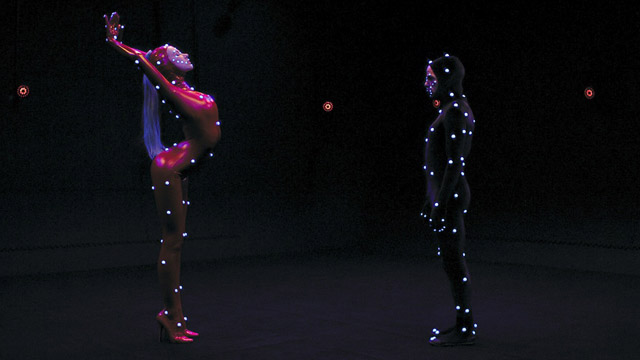
01.
Holy Motors
(Dir: Leos Carax; France)
"The feeling of health, the full-noon trill, the song of me rising from bed and meeting the sun." That quote, from Whitman, basically sums up how I felt leaving Leos Carax's Holy Motors. The movie is a beast of imagination, a prismatic mandala featuring a mysterious shape-shifting man who, in a day, goes from a beggar to a stuntman to a manic leprechaun before sitting down to lunch. From the moment Carax turns the movie's key, Holy Motors never lets up or lets you know where it's going. The result reminds us that (1) movies aren't just about narrative coherence and storytelling, although great stories can be told on screen (2) that indulgence in filmmaking is welcome, and (3) that spectacle is worth something. If you see this movie on Netflix in the coming year, watch it and remember some other words of Whitman: We contain multitudes. (Sharp)
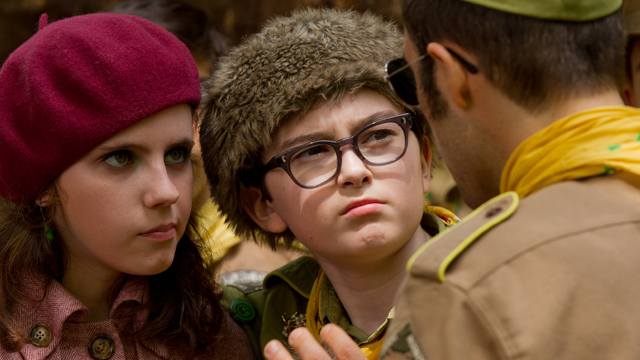
02.
Moonrise Kingdom
(Dir: Wes Anderson; U.S.)
Either Wes Anderson knows kids better than they know themselves, or he's simply the most artistically defensible test case for the value of arrested development since The Catcher in the Rye. His trademark fastidious production design and foursquare character blocking remained intact in telling the story of a bemusedly disaffected Romeo and Juliet's wilderness adventure (and close brush with a Nor'easter), though he added a grotty sort of nostalgia to the mix with his decision to film in muted 16mm. The result joins his earlier masterpieces Rushmore and Fantastic Mr. Fox in what is now a trilogy of bittersweet childhood reminiscence. (Henderson)
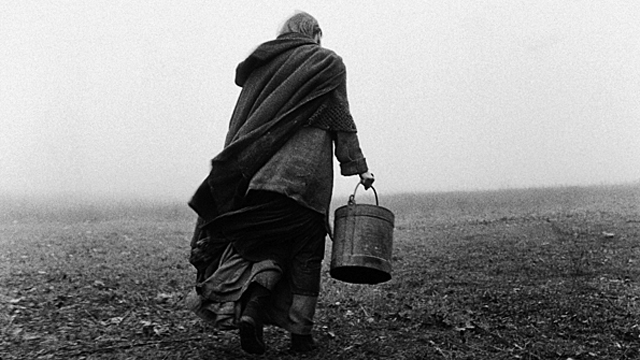
03.
The Turin Horse
(Dir: Béla Tarr; Hungary)
You don't settle in for a Béla Tarr movie. You hunker down, even for the ones that aren't over seven hours long. At a comparatively svelte 146 minutes, The Turin Horse has been advertised as Tarr's final film. (Guess Hungarians can do long goodbyes as obsessively as Minnesotans.) Spinning off from the event that purportedly drove Friedrich Nietzsche to the madness he remained in for a decade until his death -- he allegedly saw a horse being flogged and rushed over, throwing his arms around its neck in an attempt to save it -- the B&W Horse is earthy, heavy, plodding, muddy, existential, depressed, abstruse, slow and uncompromising. In other words, an action flick for movie geeks. (Henderson)

04. (tie)
Chasing Ice
This is Not a Film
(Dir: Jeff Orlowski; U.S. // Jafar Panahi & Mojtaba Mirtahmasb; Iran)
In a strong year for documentaries aiming to incite change, these two stood out from the pack, though they couldn't be more cinematically different. In Chasing Ice, director Jeff Orlowski maximizes the jaw-dropping time lapse photography of National Geographic photographer James Balog to show the effect climate change is having on the world's glaciers. Think of it as An Inconvenient Truth in gut-churning motion. In contrast to Ice's fireworks, This is Not a Film documents the efforts of filmmaker Jafar Panahi to express himself as both an artist and a human being under duress. Facing a six-year prison sentence for "propaganda" against the Iranian government in addition to a 20-year ban from making films, Panahi's cunning not-a-film (which was smuggled out from Iran on a flash drive) celebrates the flexibility of the medium in an age when many others are crying like Chicken Little. (Henderson)
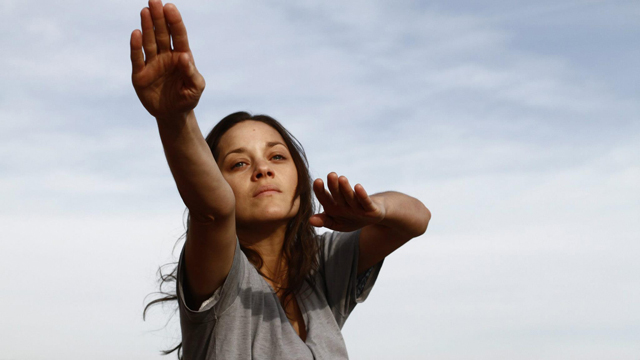
06.
Rust and Bone
(Dir: Jacques Audiard; France)
Rust and Bone is awesome in that it depicts a love story without a shred of sentimentality. It's harsh, bloody, dazzling, devastating and ugly – much the way life is. Its story, among other things, shows that human needs are satisfied in complicated ways. The main characters (Matthias Schoenaerts and Marion Cotillard) are both broken people. Schoenaerts' character is a father building a new life as a street fighter; Cotillard's is recovering from a killer whale accident that robbed her of her legs. Need begets romance. First, there's sex. That slowly flowers, through numerous complications, into the need for company in the face of defeat, loneliness, death. Not exactly a date movie, but harrowing and beautiful nonetheless. (Sharp)
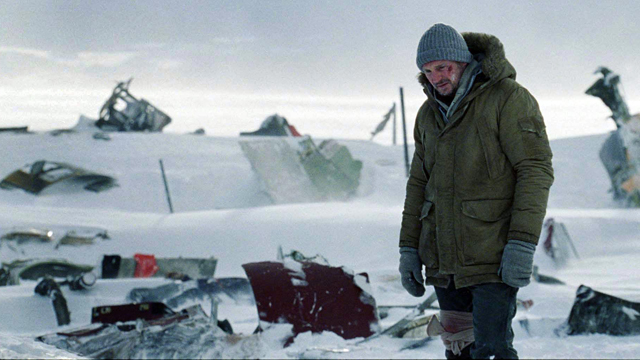
07.
The Grey
(Dir: Joe Carnahan; U.S.)
In the first few minutes of The Grey, a smarmy character takes a dig at Werner Herzog's Grizzly Man. However, he completely misses the point of the Bavarian filmmaker's documentary, which is: Nature must be respected. This smarmy character is later eaten by wolves, at which point it can be argued that The Grey and Grizzly Man share at least one similar theme. As far as story goes, The Grey's follows a down-and-out badass played by Liam Neeson as he and a gang of ruffian plane crash survivors brave a snowy wilderness with a pack of wolves stalking their snowtracks. One by one, the weakest fall prey to the wolves. It's as simple as survival of the fittest, with a few dream sequences thrown in for good effect. The straight-forward story combined with the blood-and-snow violence make for some profound viewing. Good stuff, this time of year. (Sharp)

08. (tie)
Janeane from Des Moines
Lincoln
(Dir: Grace Lee; U.S. // Steven Spielberg; U.S.)
As I'm sure you noticed, it was a big year for politics. That could perhaps be said of the movies, too. On the one had, we had Lincoln, product of writer/director duo Tony Kushner and Steven Spielberg, which let us sit in with the sixteenth president during a rather rough patch of his life. The movie, to its great credit, wasn't just another biopic; instead it offered an elegant yet gritty look at something often ugly: politics. While Lincoln bordered on epic, Janeane From Des Moines was a political mockumentary, only not very funny. The film follows the fictional Janeane as the Republican presidential hopefuls vie for votes in Iowa. Janeane (Jane Edith Wilson) meets various candidates, and gets them to talk with her. Mitt Romney gives her a hug, Michele Bachmann buys her a coffee. Director Grace Lee is by no mean a conservative, but she never makes Janeane into a political punching bag. This results in a strange little film with moments so real they got picked up by national TV news stations. (Sharp)
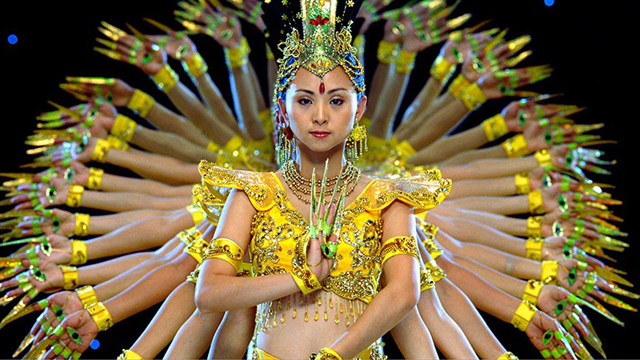
10. (tie)
The Loneliest Planet
Samsara
(Dir: Julia Loktev; U.S./Germany // Ron Fricke; U.S.)
What does the splendor of nature tell us about ourselves? What does it hide? These two films with incredible images explore the relationship humans have with our environments in strikingly different ways. Samsara, from Baraka director Ron Fricke, is like a non-stop screensaver, throwing one immaculately composed image after another to explore (or at least suggest) the lure of spirituality. On the other hand, The Loneliest Planet regularly pulls the camera back far, far away from the soon to be married couple. At first, it seems like a framing device, but when the movie reaches the midway point and a crucial moment of raw human nature, director Julia Loktev (Day Night Day Night) almost seems to be averting her eyes from the devastating fallout. (Henderson)
Honorable Mentions
Amour, Cosmopolis, Damsels in Distress, Dead Sushi, Year of the Tiger.
Greatest Performances
Eric: Denis Lavant gives not just one but 11 of the year's greatest, most chameleonic performances in Holy Motors); Ann Dowd's alternately irritable and ingratiating fast food manager enables the horrible events of Compliance without making any overt plays for sympathy; and Scoot McNairy showed impressive range as both the grungy small-time hood in Killing Them Softly and the nerve-wracked diplomat hiding out in Argo.
Jonathon: I have to echo Eric's pick of Denis Lavant; he's just too fascinating not to mention twice. Jane Edith Wilson, who played an ultra-Christian conservative in Janeane From Des Moines, amazed me in that she never made her character, whose fictional politics are quite different from her own, into an idiot. She was human, even as she wept in Mitt Romney's real-life arms.
Guiltiest Pleasures
Jonathon: Dead Sushi. I laughed like hell at that goofy, violent, over-the-top sushi sci-fi explosion of fun. As much as I love Herzog and the rest of cinema's more serious company, the world needs directors willing to explore the joys and possibilities of goofiness.
Eric: Cloud Atlas and Pitch Perfect. One has all the ambition in the world. The other just wants to give its audience 90 minutes of pure escapism. One has a cast of stars caking themselves in latex to assume multiple roles in a humiliatingly hokey new age approximation of Disney's "It's a Small World" ride. The other reduces all human emotion to Glee-esque song cues. One uses history as a mixtape. The other, well, is a mixtape. They're both among the best, or at least most entertaining, bad movies of the year.
Worst Movies That Weren't, You Know, Battleship
Eric: Bully, which uses cheap emotional pleas and a can't-lose political and ethical stance to paper over some truly shallow journalism and an unwillingness to investigate answers to its core problem, and Hitchcock, which suggests maybe the finest mass appeal filmmaker was a jealousy-prone compulsive eater who let his wife do all the hard work.
Jonathon: I had an allergic reaction to the Canadian romance Take This Waltz, even though it starred Seth Rogen and featured music by the legendary poet/musician Leonard Cohen. It was morally annoying and not much more romantically moving than walking before of a Victoria's Secret window display.
